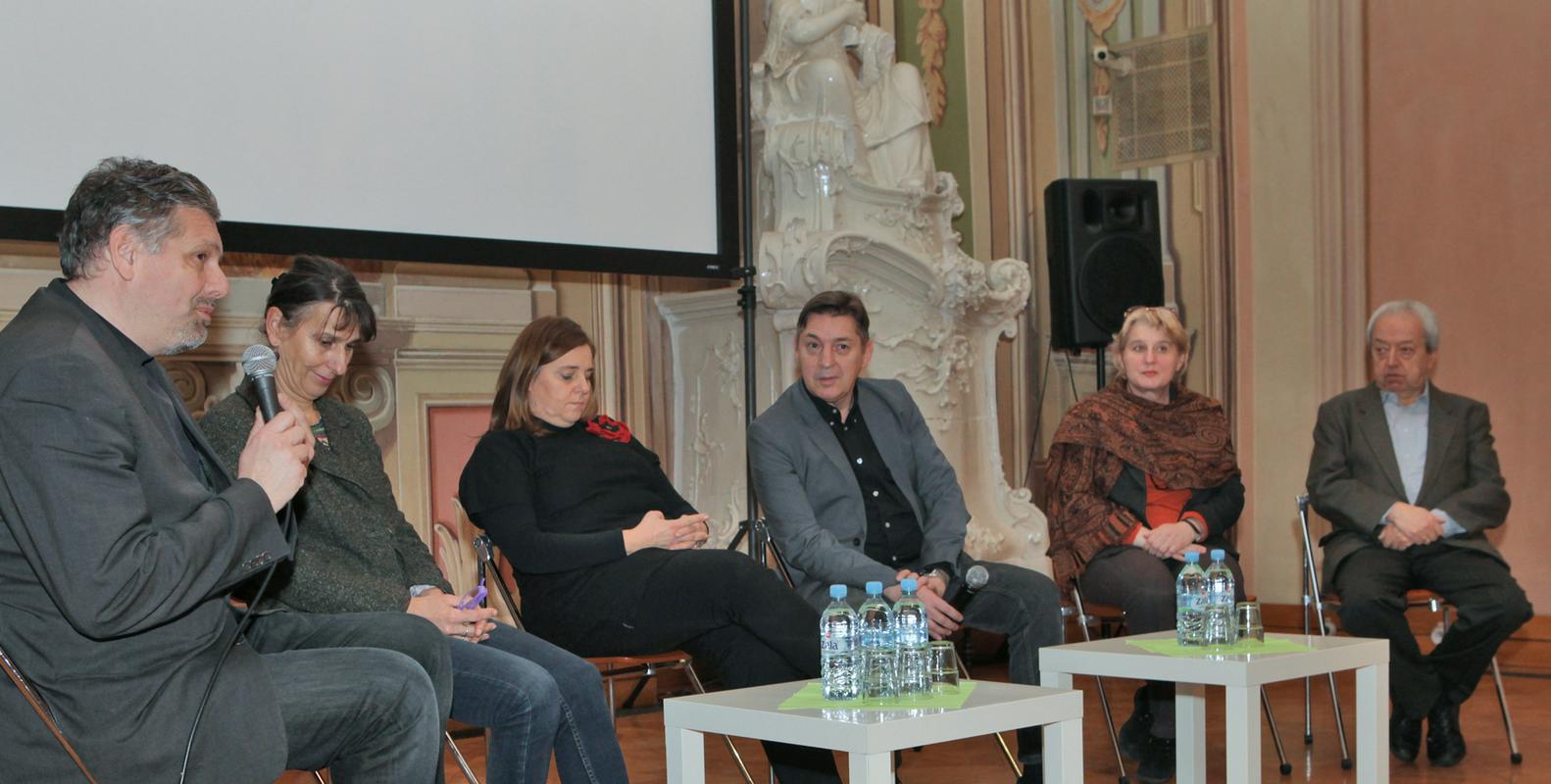

The war changed not only the lives of the soldiers who had to leave their homes, often never to return, but also the lives of those left behind. No hands were left to work the fields or in the factories, and the families remained without a permanent income. Women had to take the burden of providing for their families upon themselves. They took jobs in industry, which had transformed into production for military needs, started working jobs in public administration in order to make possible the operation of the state, and also had to work the fields – besides taking care of children and of the elderly and sickly relatives and friends.
Yet the role of women during that hard period has never been emphasized in any of the historical articles. "When speaking of the First World War, the first things that come to mind are cannons, battles, soldiers, meaningless dying. But we should ask ourselves who was, at that time, carrying the burden – which could be probably even considered crucial. Women did," claims Valentin Pečenko, director, editor and screenwriter of the show V fokusu (In the focus): Women in the Great War, broadcasted by TV Slovenija.
Millions of women worked for supplying the fronts
"The forgotten half" – the women supported the four corners of the house, and the economy. More than a half million of people, mostly women, were required to work behind the front lines in order to preserve the Soča (Isonzo) Front, and the Austro-Hungarian army along the Soča river. Millions of women worked to provide for the armies at the three fronts. The working day in production plants lasted up to 18 hours; all the previously acquired labour rights were abolished, not even Sunday was dedicated to rest. Women rose at 4 a.m., did the most urgent housework and went to work in factories. There they worked until 11 p.m., returned home and finished their housework, and went to bed for a couple of hours, Petra Svoljška described the daily routine during the war.
The documentary shows women in long skirts loading coal, female workers of the Ljubljana tobacco factory, women producing grenades and other types of ammunition… Those living in the country had to take over the work on the fields, and livestock farming. There was the shortage of food, the army needed a lot of provisions, and female farmers fought with unfavourable weather conditions and lack of draught animals. "It was just me, acting as a master, a farmhand, and even a horse," Petra Svoljšak reminds of the saying written by Fran Saleški Finžgar in his Prophecy.
A woman's hand was not needed only behind the front lines, but also in the close proximity of the fighting. There was a great need for nurses, caregivers, and surgical assistants. The first Slovenian nurse Angela Boškin worked in a number of military hospitals, and she was appointed the head nurse in Wienna; she was especially appreciated for her resourcefulness when medical supplies became scarce.
Women raised their voices demanding peace and rights
After two years of war, while the crises in the country became more and more pronounced, women started raising their voices demanding regulation of insupportable conditions, and especially demanding peace. They had no access to the political scene, since they had no right to vote, but the Slovenian women became the driving force in collecting signatures for May Declaration demanding new regulation of the monarchy, more rights for the Slavic nations, and peace. 200,000 signatures were collected.
They were alone also in their first dialogue with the state in order to win the observance of rights they were entitled to – widow's pensions, support for basic survival, etc. Due to the lack of funds caused to the state by the greedy war machinery, women organized a charitable activity, collecting essential necessities and money for war orphans, widows and war invalids, and also for the soldiers in the trenches who were receiving less and less supplies.
The end of the war brought relief – and a step backwards
The system disintegrated, the war machinery was exhausted, the central forces admitted their defeat. Men who survived the slaughter slowly started returning to their homes. After spending years in a completely different world, they refused to accept the changes that had occurred at home. They simply couldn't get used to the fact that women had gained power, and that they were capable and able to survive without a man; they demanded the old order should be re-established.
"The epilogue of the film leaves the spectator with a rather bitter taste, as after the war the life slowly returned into the old tracks; women had to step back and give up a number of previously achieved changes. It was still a patriarchal society. In the end I asked myself – were the fight, the sacrifices, the efforts, the misery women went through, adequately repaid? I don’t think so," director Valentin Pečenko says.
Ana Svenšek, MMC
Translated by G. K.

































































